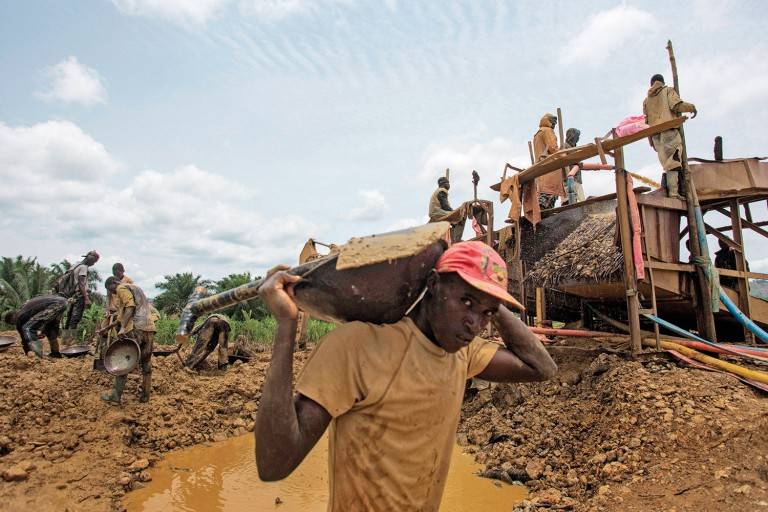Rethinking Ghana's Development: A Call for Economic Diversity
Introduction:
When we hear news of a $3.2 billion contract to rehabilitate a defunct railway line in Ghana, it may seem like a straightforward economic victory for the country. After all, it would facilitate the export of valuable minerals and commodities, boosting Ghana's economy and benefiting its population. However, as someone who has witnessed Ghana's development firsthand, I urge us to look beyond the surface and question the long-term implications of such developments. This article aims to shed light on the limitations of traditional Western development strategies, urging Ghana and other African nations to pursue economic diversity for sustainable progress.
The Flaws in Traditional Development Strategies:
Since the 1980s, Ghana has been hailed as a "star pupil" of Western-led development strategies, attracting significant financial support from rich nations and international institutions. The prevailing theory has been to focus on exploiting competitive advantages in raw materials, such as mining and agricultural commodities, with the goal of accumulating capital for technological imports and investment in productive industries. While this approach has led to some short-term gains, it raises concerns about the long-term prospects for countries like Ghana.
The Need for Economic Diversity:
Ghana's growth in per capita income and the reduction of extreme poverty are undeniably positive. However, to ensure sustainable progress, it is crucial to diversify the country's economy beyond reliance on raw materials. Over reliance on extractive industries can be precarious due to volatile commodity prices, environmental risks, and limited job creation. By broadening the economic base, Ghana can mitigate these risks and create more opportunities for its citizens.
Embracing Technology and Innovation:
Instead of solely focusing on raw material exports, Ghana should prioritize investments in technology and innovation. By nurturing a vibrant entrepreneurial ecosystem and investing in research and development, the country can foster the growth of industries that add value to its resources. This shift will not only create higher-paying jobs but also increase the country's resilience in the face of global economic fluctuations.
Investing in Human Capital:
To support a diversified economy, Ghana must invest in its most valuable asset: its people. Enhancing education and skills development programs will empower the population to participate in emerging sectors, such as technology, finance, and manufacturing. By prioritizing human capital development, Ghana can foster a skilled workforce capable of driving innovation and sustaining economic growth in the long run.
Promoting Sustainable Development:
As the world grapples with environmental challenges, Ghana has an opportunity to position itself as a leader in sustainable development. By embracing renewable energy sources, implementing green technologies, and adopting sustainable agricultural practices, Ghana can create a competitive advantage in global markets while preserving its natural resources for future generations.
Regional Integration and Trade:
Ghana should actively pursue regional integration and enhance trade within the African continent. Collaborating with neighboring countries and leveraging the African Continental Free Trade Area (AfCFTA) will unlock vast opportunities for cross-border trade, attract foreign direct investment, and stimulate economic growth. By embracing regional cooperation, Ghana can strengthen its position in the global marketplace.
Conclusion:
While Ghana's economic progress is commendable, it is vital to question the long-term sustainability of traditional development strategies centered around raw extraction. By diversifying the economy, investing in technology and innovation, prioritizing human capital development, promoting sustainable practices, and embracing regional integration, Ghana can chart a more resilient and prosperous path to the future. Let us challenge the status quo and work towards a Ghana, and indeed an Africa, that thrives through sustainable and inclusive economic growth.




No comments yet
Be the first to share your thoughts!